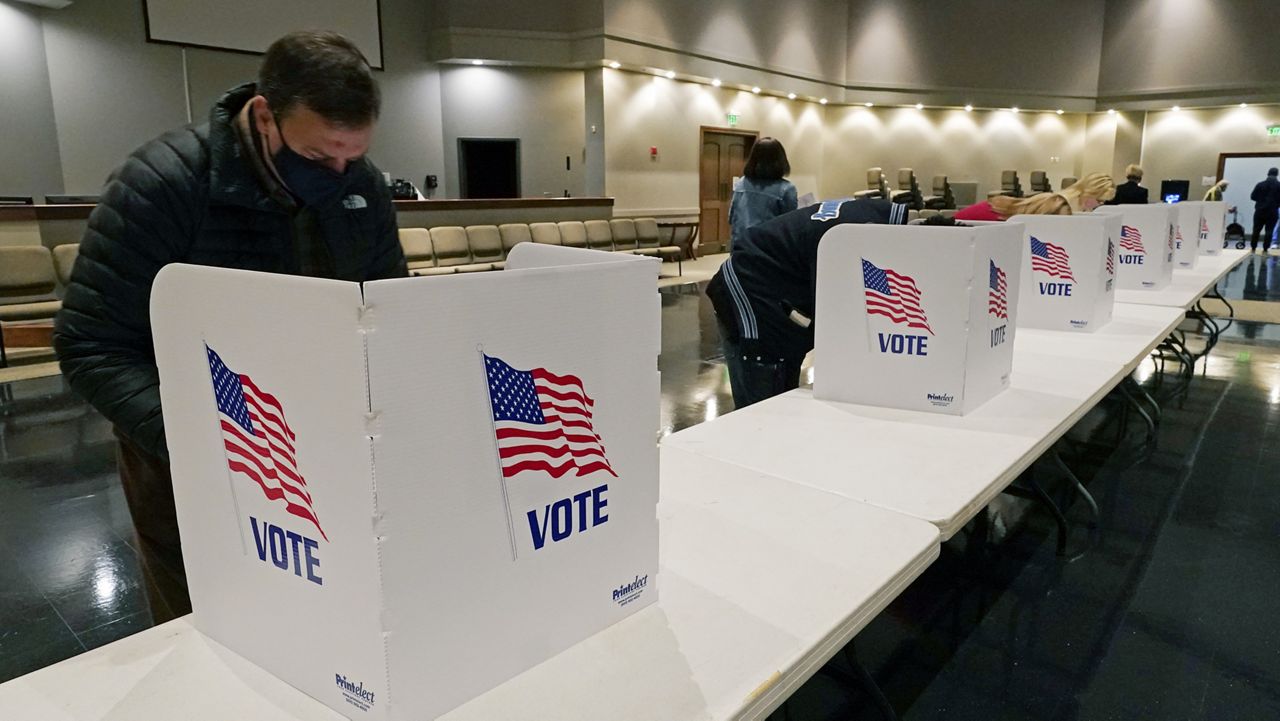Despite an hours-long, politically charged hearing on Tuesday, the Senate Rules Committee failed to advance a sweeping election reform package out of committee, reaching a stalemate on a 9-9 on party line vote.
But that doesn’t mean that the bill — known as the For the People Act — is dead in the water. Under the rules agreed on by both parties for the 50-50 Senate, Majority Leader Chuck Schumer can still bring the bill to the floor for a vote.
“This is not the last you will hear, in fact, this is the beginning as Senator Schumer will, under his rights, be able to bring the bill to the floor,” Sen. Amy Klobuchar, a Minnesota Democrat and chairwoman of the Senate Rules Committee, said after Tuesday’s vote, adding: “We look forward to working with all our colleagues to advance this bill.”
Republicans offered scores of amendments to highlight aspects of the bill they believe are unpopular, including the creation of a public financing system for political campaigns, an overhaul of the federal agency that polices elections and dozens of provisions that would dictate how states conduct their elections.
The legislation was given top billing on the Democratic agenda, but the path ahead is unclear. Moderate members of the Democratic caucus — not just Republicans — pose a sizable obstacle to the bill becoming law.
Sens. Joe Manchin of West Virginia and Kyrsten Sinema of Arizona have both said they oppose making changes to the Senate’s filibuster rules, which would be needed to maneuver the bill past Republican opposition and pass it with a simple majority in a 50-50 Senate, with Vice President Kamala Harris delivering the tiebreaking 51st vote.
Manchin has called for any elections overhaul to be done on a bipartisan basis. Other Democrats want to pare back the bill to core voting protections to try to put Republicans on the spot.
Both Manchin and Sinema were getting face time with President Joe Biden this week, as their votes are also vital to passing the president’s infrastructure plan. Manchin came to the White House on Monday, while Sinema met with Biden on Tuesday, according to the White House.
The measure would bring about the largest overhaul of U.S. elections in a generation, touching on almost every aspect of the electoral process. Democrats say the changes are even more important now as Republican-controlled states impose new voting restrictions after the divisive 2020 election.
Yet it’s a motivating issue for Republicans, too. GOP Senate leader Mitch McConnell is so determined to stop Democrats that he personally argued against the measure in Tuesday’s Rules Committee session, a rare role for a party leader that shows the extent to which Republicans are prepared to fight.
“We’ll hear a lot of flowery language today,” said McConnell. “But we all learned early in life if you can write the rules, you can win the game.”
"Our democracy is not in crisis," McConnell declared, adding that he wasn’t about to cede control of elections to new laws “under the false pretense of saving it.”
The congressional effort comes as states including Georgia, Florida, Arizona and Texas are pushing new voting rules, spurred by former President Donald Trump’s false claims about election fraud after his 2020 loss.
Democrats are on defense, having been unable to halt the onslaught of new state rules that will take months or years to litigate in court. That leaves passage of legislation through Congress as one of the few remaining options to counteract the GOP efforts.
“These bills moving in state capitals across America are not empty threats, they are real efforts to stop people from voting,” said Sen. Klobuchar.
Schumer called on Republicans to “support this bill or at least offer constructive amendments” in an attempt to find a bipartisan path forward on expanding voting rights. “I hope there will be a few.”
Republicans argue the new state rules are needed to clamp down on mail ballots and other methods that became popular during the pandemic, but critics warn the states are seeking to reduce voter access, particularly for Black voters, ushering in a new Jim Crow era for the 21st century.
The measure passed in the House with a 220-210 vote in March, largely along party lines, with one Democrat breaking ranks to vote against the bill. The bill likely faces an uphill battle in the Senate — without significant Republican support, it is unlikely to reach the 60 votes required to break the Senate’s 60-vote legislative filibuster threshold, and Democrats do not presently have the support to eliminate the filibuster.
Despite partisan contention in Congress, a majority of Americans support a number of the provisions in the bill. According to a survey conducted by the Pew Research Center in April, 61% of Americans support automatic voter registration, 68% support making Election Day a federal holiday, and 78% support making early, in-person voting available at least two weeks prior to Election Day, including 63% of Republican respondents.
President Joe Biden has said the federal legislation would “restore the soul of America” by giving everyone equal access to the vote.
The Associated Press contributed to this report.



